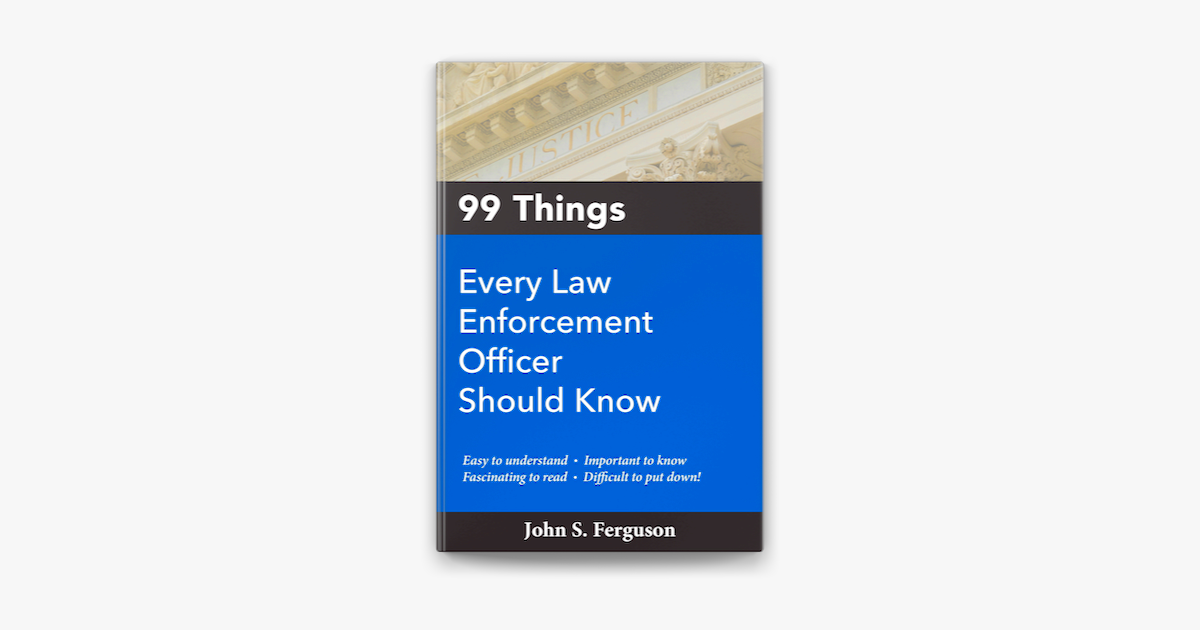Case Law Every Law Enforcement Officer Should Know
Case law plays a crucial role in shaping the practices and policies of law enforcement agencies. It consists of judicial decisions that interpret statutes and regulations, guiding officers on how to enforce the law effectively. Understanding these decisions is essential for law enforcement officers as it directly impacts their daily operations and interactions with the public. By staying informed about case law, officers can ensure they are upholding constitutional rights while effectively performing their duties.
Significance of Understanding Case Law

Understanding case law is vital for law enforcement for several reasons:
- Protecting Rights: Case law helps officers understand citizens’ rights, ensuring that they do not violate constitutional protections.
- Guiding Actions: Officers rely on case law to make informed decisions during critical situations, helping them to act within legal boundaries.
- Avoiding Legal Pitfalls: Familiarity with relevant case law can help prevent lawsuits against officers and their departments.
- Improving Training: Case law serves as a foundation for training programs, equipping officers with the knowledge they need.
Overall, understanding case law enhances the professionalism and accountability of law enforcement agencies.
Key Supreme Court Cases Impacting Law Enforcement

Several landmark Supreme Court cases have significantly impacted law enforcement practices. Here are a few essential cases:
| Case Name | Year | Significance |
|---|---|---|
| Miranda v. Arizona | 1966 | This case established the Miranda rights, requiring officers to inform suspects of their rights before interrogation. |
| Terry v. Ohio | 1968 | Allowed officers to stop and frisk individuals based on reasonable suspicion, balancing officer safety and individual rights. |
| Gideon v. Wainwright | 1963 | Affirmed the right to counsel, ensuring that defendants unable to afford an attorney receive legal representation. |
| Weeks v. United States | 1914 | This case established the exclusionary rule, preventing illegally obtained evidence from being used in court. |
| California v. Acevedo | 1991 | Clarified that officers can search a vehicle if they have probable cause to believe it contains evidence of a crime. |
These cases, among others, have created essential precedents that guide law enforcement conduct, ensuring that officers respect the rights of individuals while enforcing the law.
Fourth Amendment and Search and Seizure Cases

The Fourth Amendment protects individuals from unreasonable searches and seizures by law enforcement. This means that officers generally need a warrant, supported by probable cause, to conduct searches. However, there are exceptions to this rule that have developed through various court cases. Understanding these nuances is critical for officers to ensure they are not infringing on individuals’ rights.
Some key exceptions include:
- Consent: If an individual voluntarily consents to a search, officers can conduct it without a warrant.
- Plain View Doctrine: If an officer sees evidence of a crime in plain sight while lawfully present, they can seize it without a warrant.
- Search Incident to Arrest: Officers may search a person and the area within their immediate control during an arrest.
- Exigent Circumstances: In emergency situations, such as the risk of evidence being destroyed, officers may conduct a search without a warrant.
Famous cases like Katz v. United States (1967) and Illinois v. Gates (1983) have further shaped the interpretation of the Fourth Amendment, guiding officers in their search and seizure practices.
Fifth Amendment and Rights of the Accused
The Fifth Amendment is a vital protection for individuals accused of crimes, ensuring fair treatment under the law. It includes several important provisions, such as the right against self-incrimination and the right to due process. These rights are fundamental for maintaining justice and protecting individuals from coercion.
Key aspects of the Fifth Amendment include:
- Protection Against Self-Incrimination: Individuals cannot be compelled to testify against themselves in criminal cases.
- Due Process: The government must follow legal procedures before depriving someone of life, liberty, or property.
- Double Jeopardy: A person cannot be tried for the same offense more than once.
Cases such as Miranda v. Arizona (1966) highlight the significance of the Fifth Amendment, as they establish the requirement for officers to inform suspects of their rights during an arrest, ensuring that individuals understand their protections.
Sixth Amendment and Right to Counsel
The Sixth Amendment guarantees critical rights for individuals accused of crimes, including the right to a speedy and public trial, an impartial jury, and, importantly, the right to legal counsel. This ensures that defendants can adequately defend themselves against charges, promoting fairness in the legal process.
Key rights provided by the Sixth Amendment include:
- Right to Counsel: Defendants have the right to an attorney, and if they cannot afford one, the government must provide legal representation.
- Right to a Speedy Trial: Defendants are entitled to a trial without unnecessary delays, ensuring justice is served promptly.
- Right to an Impartial Jury: Accused individuals have the right to be judged by an unbiased jury of their peers.
Landmark cases like Gideon v. Wainwright (1963) underscore the importance of the right to counsel, reinforcing the principle that fair representation is essential for a just legal system. These protections help to uphold the integrity of the judicial process and ensure that everyone receives a fair trial.
Recent Developments in Case Law Relevant to Officers
As society evolves, so does the legal landscape. Recent developments in case law significantly impact how law enforcement officers operate daily. Staying updated on these changes is essential for officers to perform their duties effectively while respecting citizens’ rights.
Here are some notable recent developments:
- Body Cameras: Courts have ruled on the legality of using body camera footage in various contexts, emphasizing the importance of transparency and accountability in law enforcement.
- Use of Force Standards: Recent cases have clarified the standards for using force, focusing on the necessity and proportionality of the response to a perceived threat.
- Digital Privacy: Cases addressing digital privacy have evolved, particularly concerning cell phone searches and the use of data from social media, requiring officers to navigate these issues carefully.
- Qualified Immunity Challenges: Discussions around qualified immunity have intensified, with courts re-evaluating when officers can be held personally liable for their actions.
These developments remind officers of the dynamic nature of the law and the importance of continuous training and education to stay compliant with legal standards.
Conclusion on the Importance of Case Law for Law Enforcement
Understanding case law is fundamental for law enforcement officers. It shapes their actions, helps protect citizens’ rights, and promotes accountability within agencies. By knowing the legal precedents, officers can navigate complex situations while upholding the law effectively.
Case law not only guides officers in their daily tasks but also helps build trust within the communities they serve. When officers are knowledgeable about the law, it fosters respect and cooperation between the police and the public. This relationship is crucial for maintaining public safety and ensuring justice.
In summary, continuous education and awareness of case law are vital for every officer. This understanding not only enhances their professionalism but also contributes to a fair and just legal system.
FAQs about Case Law for Law Enforcement Officers
Here are some frequently asked questions regarding case law that can help clarify its importance and relevance to law enforcement:
| Question | Answer |
|---|---|
| Why is case law important for officers? | Case law helps officers understand their legal obligations and the rights of individuals, ensuring they act within the law. |
| How can officers stay updated on case law? | Officers can stay informed through training sessions, legal briefings, and subscribing to law enforcement publications. |
| What are some key cases officers should know? | Important cases include Miranda v. Arizona, Terry v. Ohio, and Gideon v. Wainwright, which address critical rights and procedures. |
| What happens if an officer violates case law? | If an officer violates established case law, they may face disciplinary action, legal liability, or civil lawsuits. |
Understanding these questions can help officers appreciate the role of case law in their work and the importance of adhering to established legal principles.


